
“In general, I weathered even the worst sermons pretty well. They had the great virtue of causing my mind to wander. Some of the best things I have ever thought of I have thought of during bad sermons. Or I would look out the windows. In winter, when the windows were closed, the church seemed to admit the light strictly on its own terms, as if uneasy about the frank sunshine of this benighted world. In summer, when the sashes were raised, I watched with a great, eager pleasure the town and the fields beyond, the clouds, the trees, the movements of the air—but then the sermons would seem more improbable. I have always loved a window, especially an open one.”1
Wendell Berry is a masterful writer. In one paragraph he captures a wealth of emotions and several insights into the human predicament. It is as if the first-person-speaker represents several church-attendees in a few sentences. First there is the preacher who, despite his best efforts, has delivered a poor sermon. Does he know he is delivering a bad sermon? Can he see it on the faces of the people in the seats; in the eyes that wander or close; in the rustle of pages and shifting of Sunday clothes? Next there is the person whose mind is wandering to other thoughts and other places. What is it that has contributed to these “best things [they] have ever thought?” Is it the preacher; the quiet atmosphere of the church building; or the songs that have been sung? Finally, there is the person who unabashedly stares out the window and observes the creation. Is this person tuned into God or wholly disconnected? Neither the preacher nor the reader knows the answer to these questions. It is as God says in Jeremiah 17:10, “But I, the LORD, search all hearts and examine secret motives. I give all people their due rewards, according to what their actions deserve.” May God be gracious with a greater measure of grace than we have given.
Long Sermon (Brad Paisley)
They’ve read the scripture, they’ve passed the plate
And we’re both prayin’, he don’t preach late
But he’s gettin’ “Amens”, and that’s just our luck
Yeah, it’s eighty-five degrees outside and he’s just gettin’ warmed upOh you and me, we could be soakin’ up that sun
Findin’ out just how fast your brother’s boat’ll run
I tell you there ain’t nothin’ that’ll test your faith
Like a long sermon on a pretty SundayWell it’s been rainin’ all week long
I woke up this mornin’, the dark clouds were gone
We’ve both been raised not to miss church
But on a day like today heaven knows how much it hurts‘Cause you and me, we could be soakin’ up that sun
Findin’ out just how fast your brother’s boat’ll run
I tell you there ain’t nothin’ that’ll test your faith
Like a long sermon on a pretty SundaySee that sunlight shinin’ through that stained glass
How much longer is this gonna lastYeah, you and me, we could be soakin’ up that sun
Findin’ out just how fast your brother’s boat’ll run
I tell you there ain’t nothin’ that’ll test your faith
Like a long sermon on a pretty Sunday
Like a long sermon on a pretty SundayBrad Paisley and Tim Nichols; Published by Sony/ATV Music Publishing LLC, Warner/Chappell Music, Inc.
1. Jayber Crow, Wendel Berry, p.
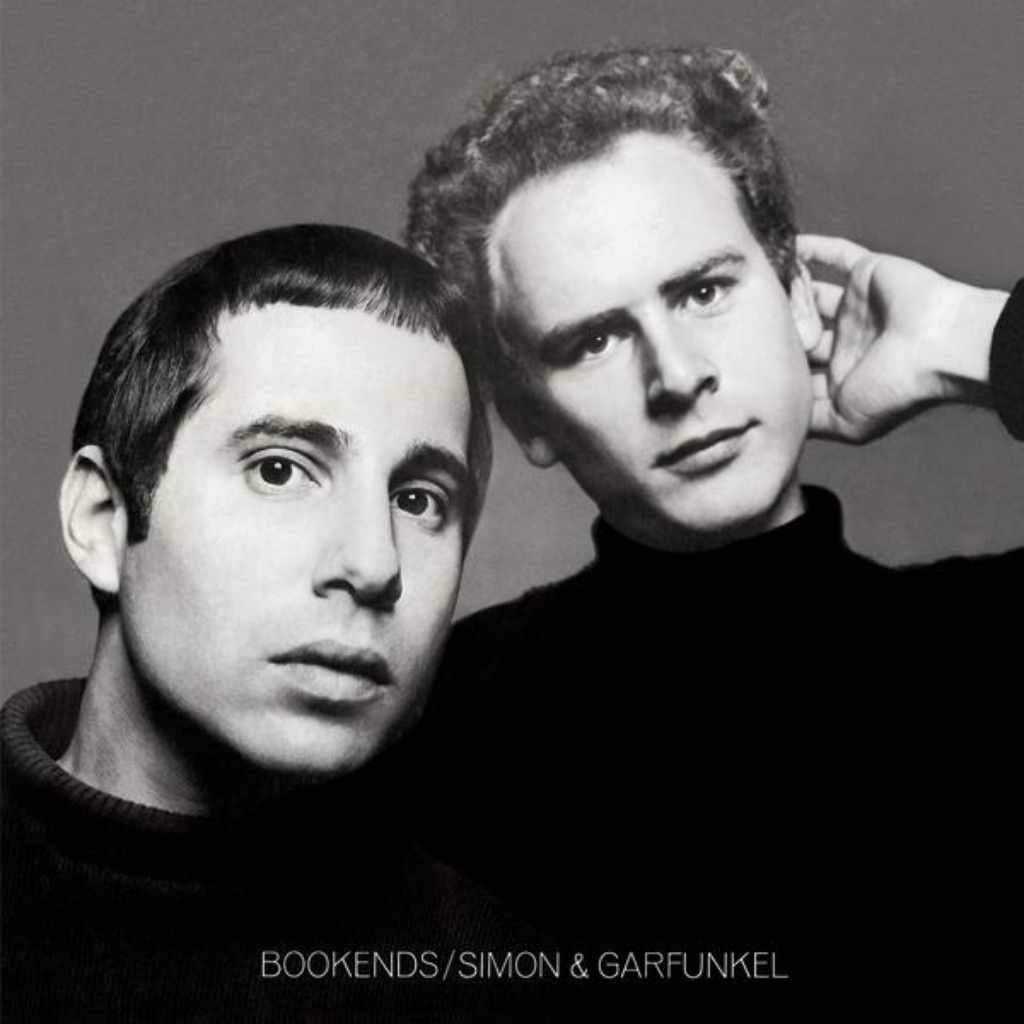
the early sixties and appears on Simon & Garfunkel’s fourth studio album, Bookends (1968). The song is a metaphor
for a life which draws upon the transition from fall to winter. It speaks of a
person who once had great hope, but as time goes on, hope is slowly
transitioning to uncertainty. There is a haze through which the writer cannot
see clearly. He listens to the Salvation Army Band for inspiration but it is unclear
if this gives him any peace. Ultimately, he rejects the message of salvation
and turns back to his vodka and lime while reading his collection of incomplete rhymes. It is a mid-life crisis song in which the singer wonders if he
has accomplished anything in his life and longs for something more; he longs to
be remembered. He recognizes that it should be the springtime of his life, but
the patch of snow on the ground tells him that winter is coming.
Hazy
Shade of Winter
Time,
time time, see what’s become of meWhile
I looked around for my possibilitiesI
was so hard to pleaseBut look aroundThe
leaves are brownAnd
the sky is a hazy shade of winterHear
the Salvation Army bandDown
by the riverside, there’s bound to be a better rideThan
what you’ve got plannedCarry
your cup in your handAnd
look around youLeaves
are brown, nowAnd
the sky is a hazy shade of winterHang
on to your hopes, my friendThat’s
an easy thing to sayBut
if your hopes should pass awaySimply
pretend that you can build them againLook
aroundThe
grass is highThe
fields are ripeIt’s
the springtime of my lifeSeasons
change with the sceneryWeaving
time in a tapestryWon’t
you stop and remember meAt
any convenient time?Funny
how my memory skips while looking over manuscriptsOf
unpublished rhymeDrinking
my vodka and lime
I
look aroundLeaves
are brown, nowAnd
the sky is a hazy shade of winterLook
aroundLeaves
are brownThere’s
a patch of snow on the groundLook
aroundLeaves
are brownThere’s
a patch of snow on the groundLook
aroundLeaves
are brownThere’s
a patch of snow on the groundWords and music written by Paul Simon; published
by Universal Music Publishing Group ©.
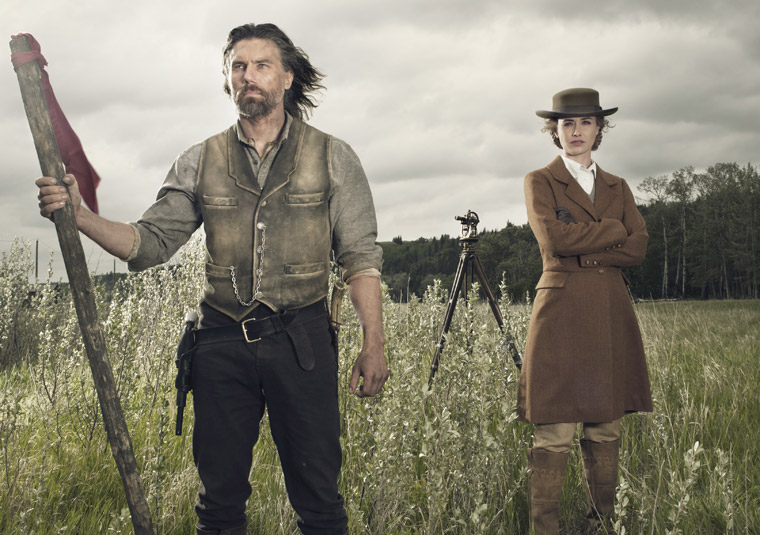
The AMC original television series, “Hell on
Wheels,” is the new “Breaking Bad.” Both feature
anti-heroes: men for whom we cheer and hope will survive, at least until the next
episode, even as they leave a trail of death behind them. Both Walter White (“Breaking
Bad”) and Cullen Bohannan (“Hell on Wheels”) are men who have
been broken by tragedy in their past; and because of the tragedy, each becomes
an outlaw and murderer. Both live lives driven by their individual sense of
justice. Of the two of them, Cullen Bohannan is the man with whom we can
empathize and perhaps understand a little more. The horrific death of his wife
and son, at the hands of a renegade troop of Union soldiers during the Civil
War, has left him searching for the evil men who raped and hung his wife. As he
tracks each killer he is confronted by the depravity of the western frontier
where “justice” is meted out by men of power to further their own
interests rather than to achieve a just society.
integrity of Bohannan may indeed be greater than the integrity of those around
him. He achieves a measure of justice by executing those who have tortured and
killed numerous men and women; he feels remorse when he discovers he has killed
a man who was not involved in the slaying of his wife; he is true to his role
as a legally appointed lawman and fulfills his duty in hanging those who
confess to murders; he protects the interests of the poor and oppressed; and he
searches his heart and reforms his character as he becomes a husband and a
father to his new wife and son.
is a model for our own behavior or that he accomplishes his goals in a proper
manner. Bohannan is indeed a fallen man who achieves a level of notoriety and
respect because he seeks to have an integrated sense of justice (individualized
as it is) that keeps him true to what he believes is right. Indeed, in Season
Five, two of the characters will debate whether Bohannan is a loving husband
and father or the devil himself. We await the release of the final episodes to
clarify the verdict, but at least one person has already rendered her judgment
upon this question. In Season Three, Louise Ellison, writer for the Cheyenne
Leader has this to say about the man.
In the
brave new frontier he calls home, integrity is important to Cullen Bohannon.
Whether a man of integrity is what’s needed to build the nation’s first
transcontinental railway, we don’t yet know.The railroad
has always been the business of the unscrupulous and corrupt. I suspect our new
Chief Engineer to be neither, a change of pace from railroad men of the past,
the slick industrialists who made themselves rich at the expense of the U.S.
treasury and the American public.Challenging
times lay ahead, but Cullen Bohannon seems prepared to face them head on. He’s
plagued by a fierce determination, an unbending will to finish this railway no
matter the personal cost. He is a fighter. A survivor. A builder. For that,
dear reader, we might all count our blessings, and say a prayer.1
1. Hell on Wheels Blog Site; http://www.amc.com/shows/hell-on-wheels/talk/2013/08/louise-ellison-column-life-begins-anew-in-u-p-s-hell-on-wheels

A few days ago my thoughts were focused on the fact that we are all “terminal.” Today my mind turns to the things within us that drive us to keep on living. We have likely all known someone who planned to “live a hard life, have a good time, and die young” only to be surprised when they managed to achieve some measure of greater age and found that they did not want to die. Agatha Christie once said,
“I like living. I have sometimes been wildly despairing, acutely miserable, racked with sorrow, but through it all I still know quite certainly that just to be alive is a grand thing.”
Similarly, Dylan Thomas wrote,
“Do not go gentle into that good night,
Old age should burn and rave at close of day;
Rage, rage against the dying of the light.”
There is certainly something within that keeps us striving to live at almost any cost; and I would not want to discourage anyone from choosing to stay alive. Perhaps the best we can do is determine to know that we are indeed dying a little every day; and then, also know that every moment we have on this earth counts for something. We can choose how we will live these days we have on earth. There are many who choose to live each one in pursuit of personal gain. There are also many who choose to help others achieve a measure of success. Still another group seeks to “Love the Lord [their] God with all [their] heart, soul, strength, and mind and love [their] neighbour” as themselves. (Luke 10:27) The question I must ask myself is, “How will I live and die upon this earth?”
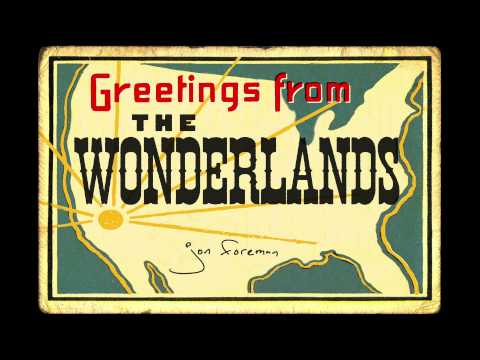
“Death is to be warded off by exercise, by healthy
habits, by medical advances. What cannot be halted can be delayed, and what
cannot forever be delayed can be denied. But all our progress and all our
protest notwithstanding, the mortality rate holds steady at 100 percent.”[1]
where it is more and more common to have no funeral or memorial service, we
still cannot hide the fact that death is inevitable. I have had friends that
died at 58, I have friends that are alive at 96. We all know that one day we
must leave this place. We await the mystery of death.
an essay which was published in February of 2000. In this essay he considers
his attitude toward death after nearly dying in 1993. It is a marvelous essay and I encourage you to read it here.
large tumor that had ruptured his colon, the surgeon told Neuhaus, “It was as
though you had been hit twice by a Mack truck going sixty miles an hour. I
didn’t think you’d survive.” As he began to recover and regain enough strength
to walk around the block, he recounts some of his feelings as he realized we
are all “born toward dying.”
“Shuffling around the block and then, later, around several
blocks, I was tired of [New York]. Death was everywhere. The children at the
playground at 19th Street and Second Avenue I saw as corpses covered with
putrefying skin. The bright young model prancing up Park Avenue with her
portfolio under her arm and dreaming of the success she is to be, doesn’t she
know she’s going to die, that she’s already dying? I wanted to cry out to
everybody and everything, “Don’t you know what’s happening?” But I didn’t. Let
them be in their innocence and ignorance.”
we struggle against it, but we are all dying.
flawed and we must not “let our spirit die before our body does.”
Terminal(words and music by Jon Foreman)The doctor says I’m dying
I die a little every day
He’s got no prescription
That could take my death away
The doctor says, “It don’t look so good”
It’s terminalSome folks die in offices
One day at a time
They could live a hundred years
But their soul’s already died
Don’t let your spirit die before your body does
We’re terminal, we’re terminal, we’re terminalWe are, we are the living souls
With terminal hearts, terminal parts
Flickering like candles, shimmering like candles
We’re fatally flawed, fatally flawedWhenever I start cursing
At the traffic or the phone
I remind myself that we have all got
Cancer in our bones
Don’t yell at the dead
Show a little respect
It’s terminal, it’s terminalWe are, we are the living souls
With terminal hearts, terminal parts
Flickering like candles, flickering like candles
We’re fatally flawed, we’re fatally flawedWe are, we are the living souls
With terminal hearts, terminal parts
Flickering like candles, flickering like candles
We’re fatally flawed, we’re fatally flawed“Earth to earth, ashes to ashes, dust to dust
For our days here are like grass
We flourish like a flower of the field
The wind blows and it is gone
And its place remembers it no more
Naked we came from our mother’s womb
And naked we will depart
For we bring nothing into the world
And we can take nothing away”We are, we are, we are, we are, we are the living souls
With terminal hearts, terminal parts
Flickering like candles, flickering like candles
We’re fatally flawed, in the image of God.
terminal. I hope that doesn’t come as a shock to you. Some of us have been
fortunate to live many good years on this earth. We know all too many who have
died before their time. But, what is before their time? What is before my time?
Does anyone know how many days he or she has been given on this earth? “Our days on
earth are like grass; like wildflowers, we bloom and die. The wind blows, and
we are gone – as though we had never been here” (Psalm 103:15, 16). Oh, God, “Teach
us to number our days, that we may gain a heart of wisdom” (Psalm 90:12) for we
are fatally flawed, in the image of God. We’re terminal.
2000, http://www.firstthings.com/article/2000/02/born-toward-dying

Starship 21ZNA9A good friend of mineStudies the starsVenus and MarsAre alright tonight"Venus and Mars" lyrics by Paul McCartney and Linda McCartney; published by MPL Communications, Inc.
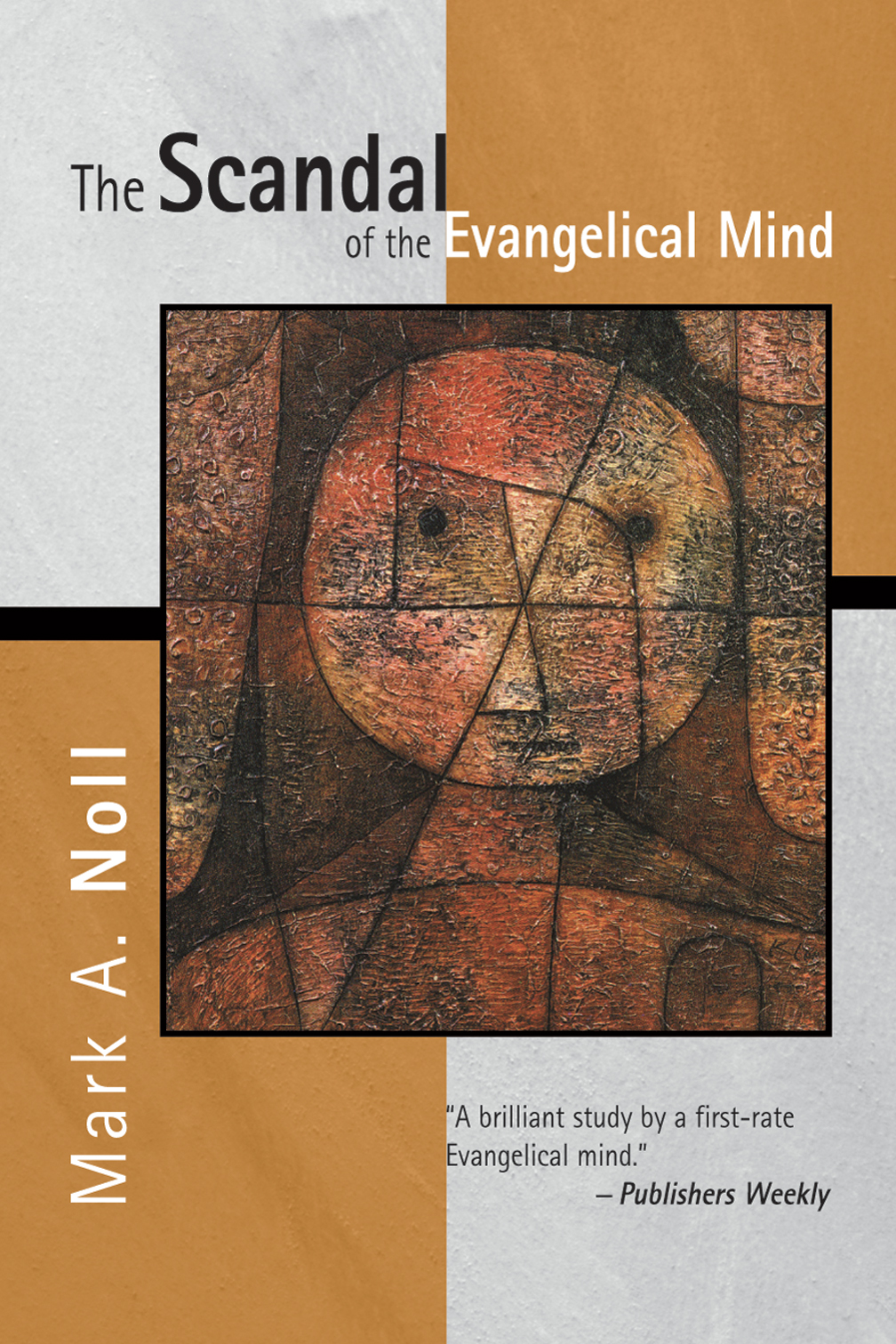
I have never met Mark A. Noll; but, if we
ever do have a conversation together, I expect I would find myself very much
agreeing with him. He is the sort of intellectual writer who is unafraid to
turn over all of the stones and search for every seed of truth. He desires to take
each gem of enlightenment captive to Christ. His most widely read book, The
Scandal of the Evangelical Mind,
contains many great insights on the way in which mainstream Evangelicalism
strayed so far from truth. He says,
the supernatural, fundamentalists and their evangelical heirs resemble some
cancer patients. In facing a drastic disease, they are willing to undertake a
drastic remedy. The treatment of fundamentalism may be said to have succeeded;
the patient survived. But at least for the life of the mind, what survived was
a patient horribly disfigured by the cure itself.[1]
loss of a critical mind that exhibits a measure of skepticism regarding the
miraculous and a healthy measure of skepticism appropriate to the scientific
method. He is desirous that all Christians might live within the tension of
belief and uncertainty. He further explains. “I was brought
up in a Christian environment where, because God had to be given pre-eminence,
nothing else was allowed to be important. I have broken through to the position
that because God exists, everything has significance.”[2]
provides the raw material for physical sciences)? Who formed the universe of
human interactions (which is the raw material of politics, economics,
sociology, and history)? Who is the source of all harmony, form, and narrative
pattern (which is the raw material for art)? Who is the source of the human
mind (which is the raw material for philosophy and psychology)? And who, moment
by moment, maintains the connection between our minds and the world beyond our
minds? God did, and God does.[3]
each consider the relationship between faith and science, belief and
agnosticism, and spirituality and materialism. May those who have comprehending
minds meditate upon these thoughts.
Works Cited
Evangelical Mind. Grand Rapids: Wm. B. Eerdmans, 1995.
[3] (Noll 1995)
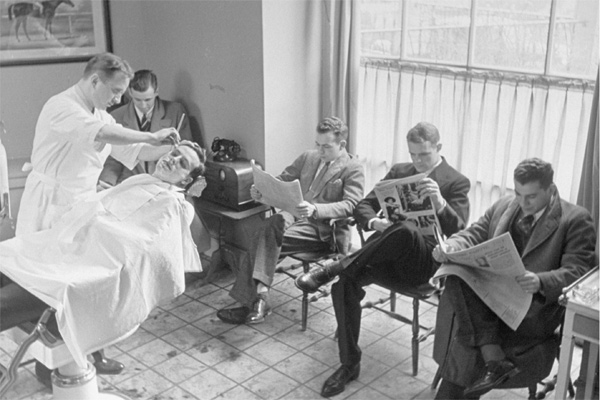
In his brilliant novel, Jayber Crow, Wendell Berry creates a particular scene to illustrate a point. Jayber Crow, who is
narrating his own story, is the town barber and, as is the lot of a small-town
barber, hears many conversations in his barber shop. Some of these
conversations are entertaining, amusing, and educational. Others are just plain
ignorant. He recounts the following interaction with Troy Chatham.
evening, while Troy was waiting his turn in the chair, the subject was started
and Troy said – it was about the third thing said – “They ought to round up
every one of them sons of bitches and put them right in front of the damned
communists, and then whoever killed who, it would be all to the good.”
little pause after that. Nobody wanted to try to top it. . . .
do, but I quit cutting hair and looked at Troy. I said, “Love your enemies,
bless them that curse you, do good to them that hate you.”
head up and widened his eyes at me. “Where did you get that crap?”
Christ.”
“Oh.”
been a great moment in the history of Christianity, except that I did not love
Troy.[1]
easy it is to love our enemies in the abstract. It is difficult to love actual
people.
Works Cited
Crow. Berkeley: Counterpoint, 2000.
2000, 287)
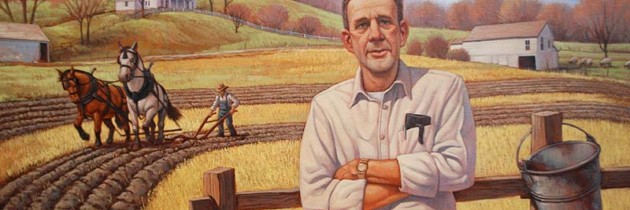
Anyone
who has read this blog for any length of time will know that I rely heavily
upon the writings and sayings of others. I frequently use the words that
another has said or written as a jumping off point for exploring my own
thoughts. Most of the time, I am confident that this is a fruitful method. Yet,
I am also aware of the pitfalls of such an approach and have often witnessed
problems with this technique in the writings of others; and so I know that it
must also exist in mine. The basic difficulty lies in the fact that by taking
one small snippet of a writer’s thoughts, we run the risk of missing their
meaning and perhaps interpreting their words in the opposite sense in which
they were intended. For example, if one searches for quotes written by Wendell
Berry in his book, Jayber Crow, you
will find, online, a preponderance of quotes which support pessimism toward God
or toward his existence. Here is an example of an often used quote that, at
first glance, suggests that Berry is a proponent of atheism:
said, “if Jesus said for us to love our enemies – and He did say that,
didn’t He? – how can it ever be right to kill our enemies? And if
He said not to pray in public, how come we’re all the time praying in
public? And if Jesus’ own prayer in the garden wasn’t granted, what is
there for us to pray, except ‘thy will be done,’ which there’s no use praying
because it will be done anyhow?” . . . He said, “Have you any
more?”
said, for it had just occurred to me, “suppose you prayed for something
and you got it, how do you know how you got it? How do you know
you didn’t get it because you were going to get it whether you prayed for it or
not? So how do you know it does any good to pray? You would need
proof, wouldn’t you?”
proof.”
each other.
answers?”
cannot be given answers. You will have to live them out – perhaps a
little at a time.”
take?”
you live, perhaps.”
time.”
mystery,” he said. “It may take longer.”[1]
questions Wendell Berry’s character, Jayber Crow, asks are typical of one who
has had faith and then lost it. They suggest someone who is trying hard to
believe in Jesus, but just can’t do it. For those who like to draw quotes from
Wendell Berry to suggest agnosticism, this is sufficient to prove their point that, it is not rational to believe in a God who answers prayer and interacts
with His creation.
Crow says these words at a point that is one sixth of the way through the book.
One has to go a full two-thirds of the way through the book to see the answer
Jayber Crow gives himself. The answer, which shows a renewed faith in Jesus,
goes like this:
knew… why Christ’s prayer in the garden could not be granted. He had been
seeded and birthed into human flesh. He was one of us. Once He had become mortal,
He could not become immortal except by dying. That He prayed the prayer at all
showed how human He was. That He knew it could not be granted showed his
divinity; that He prayed it anyhow showed His mortality, His mortal love of
life that His death made immortal. . . .
the world, might that not be proved in my own love for it? I prayed to know in
my heart His love for the world, and this was my most prideful, foolish, and
dangerous prayer. It was my step into the abyss. As soon as I prayed it, I knew
that I would die. I knew the old wrong and the death that lay in the world.
Just as a good man would not coerce the love of his wife, God does not coerce
the love of His human creatures, not for Himself or for the world or for
another. To allow that love to exist fully and freely, He must allow it not to
exist at all. His love is suffering. It is our freedom and His sorrow. To love
the world as much even as I could love it would be suffering also, for I would
fail. And yet all the good I know is in this, that a man might so love this
world that it would break his heart.”[2]
are the words of a man who has found a renewal of his faith. These are the
words of someone who will trust Jesus. The point is, one must consider the
whole body of work before concluding the position of the author on this
particular issue. One small, or large, quote does not fully represent the
beliefs of Jayber Crow or, by extension, the beliefs of Wendell Berry. The
bottom line, for both writers and readers, is that we must not be lazy about
investigating the thoughts of an author. Truly substantiating a point may
require a good deal more reading than most of us choose to invest. Becoming
true scholars, knowledgeable readers, and connoisseurs of words will require a
good deal more outlay of time; but, as good scholars will know, the investment
is worth the reward.